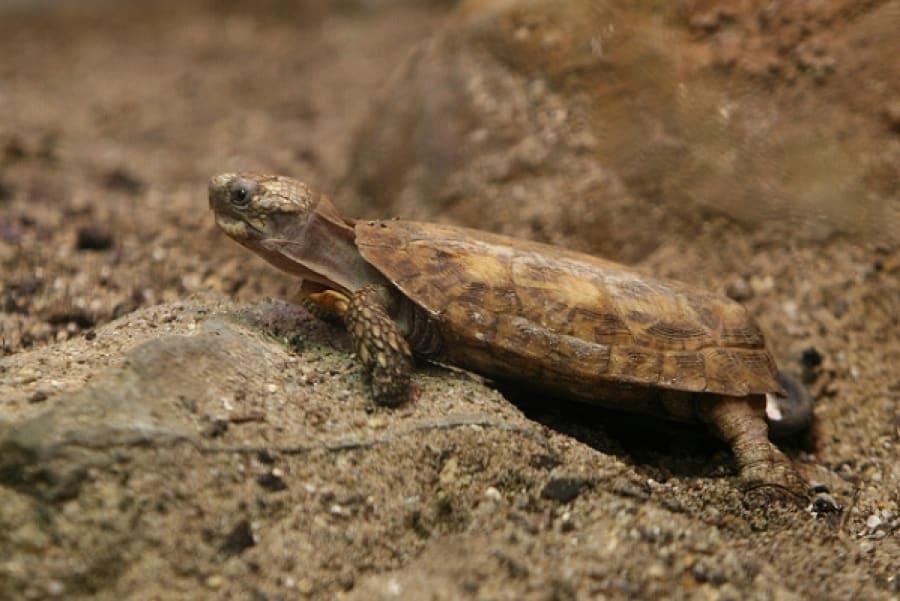
Scientific Name
- The scientific name of Pancake Tortoise is Malacochersus tornieri.
Description
- The tortoise makes hardy captives.
- This kind of tortoise is one of the oddest of all tortoises
- It has a flat and rather soft shell, soft plastron, and has the habit of fleeing rather than withdrawing into its shell when it is disturbed.
- The tortoise is an excellent climber and makes its home under rocks.
Description
- These tortoises are found in Kenya, Tanzania, and South Eastern Africa.
Breeding
- Incubation 99 – 237 days.
- Incubated at around 30 C
Nesting
- Normally 1 egg is latched. Rarely 2 eggs are latched.
- The pancake tortoise’s egg is large.
- Prior to nesting, the female tortoise is very active.
- One of the behavior is digging trial nests in the substrate.
Size
- Adult size is about 6 inches (15cm) in length, 1-1.5 lbs (0.5-0.7kg).
- Mature males have much longer and thicker tails than females.
- Additionally, males tend to be smaller than females, and the ray pattern on their scutes is less distinct.
Lifespan
- Captive tortoises can live 25 years or more.
Diet
- Herbivorous (plant-eating);
- They eat dry and Fresh Grass, Dark Leafy Greens (e.g., Mustards, Collards, Turnips, or kale).
- Sometimes feeding them Pears, Apples (with skin), Beans (with skin), Peas (with skin), and Carrots is ok.
- But never feed them with Very Juicy Fruits, like tomatoes, bananas, cabbages, cucumbers, Bok Choy, lettuces, broccoli, etc.
Tortoise Habitat and Vivarium Housing
- Terrestrial, since they are sociable.
- Rocky hillsides are their natural habitat.
Pancake Tortoise Common Disease
- These tortoises might suffer repeated flagellate and gut problems such as colic resulting from excessive soft fruit feeding. Juicy food or fruits are not suitable such as tomatoes or lettuce.
- Meat should not be given to Pancake Tortoises. It would cause poor bone formation, liver problems, excessive growth, etc.
